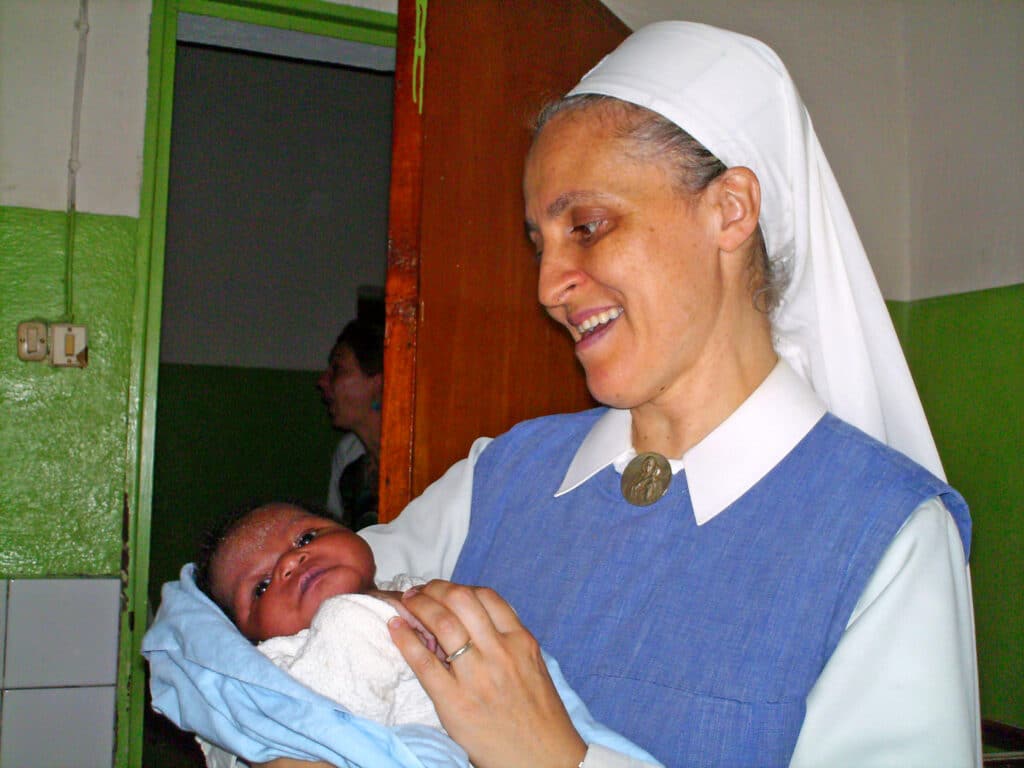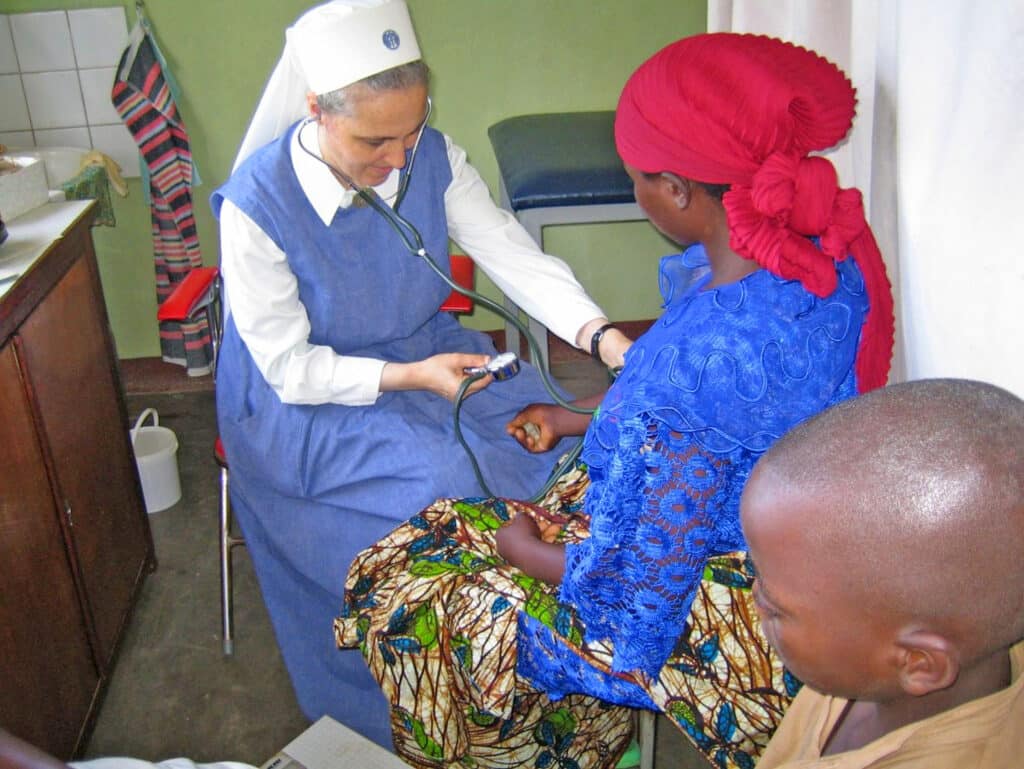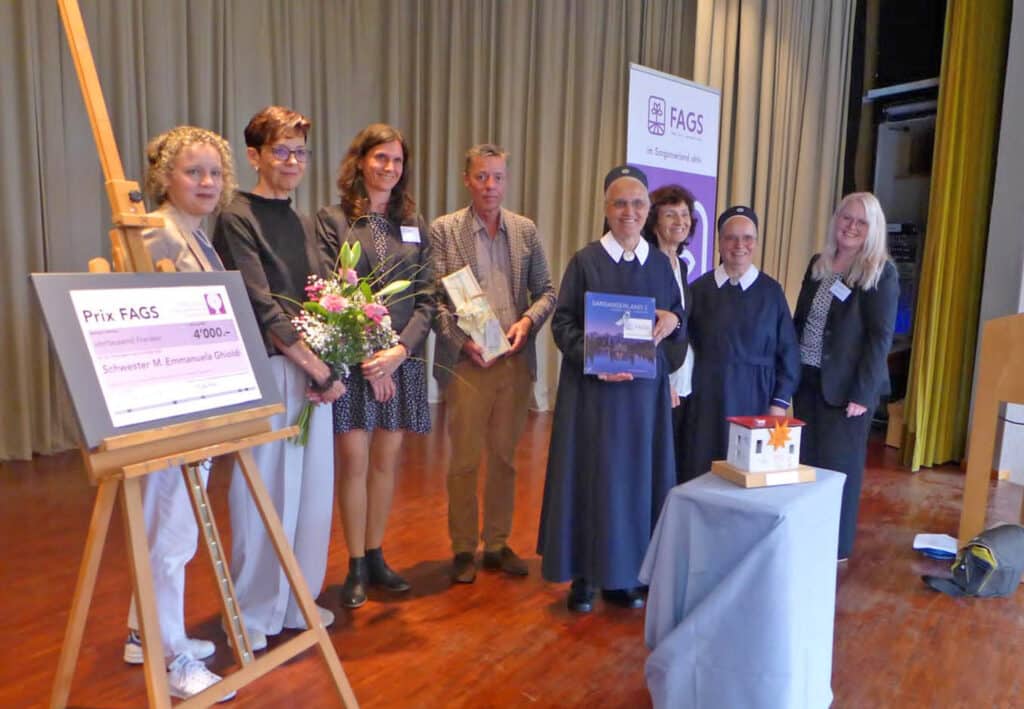On June 8th Sr. M. Emmanuela Ghioldi was awarded in Quarten (Switzerland) the Prix-FAGS, the award of the Sarganserland Women’s Working Group, for her life’s work (read the article here): For many years she has devoted herself entirely to serving the poor and sick in Burundi. Schoenstatt.com had the opportunity to speak with her about her commitment and what motivates her.
Sr. M. Emmanuela, how did your mission in Burundi come about and what is your professional background?
When I was 10 years old, I promised God that one day I would dedicate myself to serving in a poor country. That influenced my career choice. I studied to become a nurse (today we call it “nursing specialist”) at the Ilanz School of Nursing in the canton of Grisons in Switzerland. During my training I participated in the Schoenstatt Youth. At the age of 22 I made the decision to join the Schoenstatt Sisters of Mary – combined with the desire to be sent to a mission country. When I presented myself in Quarten, I learned that the Swiss Province would soon assume responsibility for the mission area in Burundi, Central Africa. So, in 1984 I joined the community of the Sisters of Mary with the desire to be sent later to Burundi.

After her vesting, she worked initially for several years in various capacities within and outside the Sisters’ community. During that time, she learned French to prepare herself for her new assignment. And then one day the time came…
Yes, in February 1996 I was able to fly to my new home, Burundi: a country ravaged by civil war since 1993 and still at war. The Sisters had our home next to the Schoenstatt Shrine in Mutumba, in the so-called red zone. Mutumba is about 30 kilometers from the capital, Bujumbura. The people often took refuge in our houses. They felt safer there.
Shortly after my arrival, the German embassy sent us a message to leave the country immediately for security reasons. However, we decided not to abandon the people. There were also religious reasons: Our Lady had taken up residence here in the little chapel, so we remained faithful to her. During the war, we experienced the evident protection from above several times. We could always touch her with our hands.
I was impressed by the testimony of a former rebel who, after the war, said to a young local sister: “You must pray a lot! Several times we planned to attack the sisters’ houses, but we always turned back without knowing very well why”. There were many break-ins at that time and there were also fatalities.

What is your work like in the hospital at the moment?
I am not in a hospital. I work at the Mutumba Health Center, which has belonged to the Schoenstatt Sisters of Mary since 2004. It is an outpatient health center where we only have a doctor three days a week. The treatment is otherwise mainly provided by nurses. We see many patients who in Europe would need hospitalization. We refer those who need surgery or have complicated illnesses to our district or city hospital. We have a small 40-bed hospital ourselves, where we treat about 125 patients a month. As the person in charge of the health center, I work mainly in the administrative area.
What is the social situation of the people who come to your center?
We have patients with a wide variety of pathologies. The most common disease is malaria, but we also have young children with pneumonia, people with gastrointestinal or parasitic diseases, tropical wounds, leprosy, burns or skin diseases, psychiatric patients (especially patients with psychosis), tuberculosis patients, diabetics, malnourished people, accident victims, etc.
We also have a maternity ward that offers prenatal examinations and a vaccination program for newborns and infants. In this regard, many mothers and pregnant mothers also come to us. We also care for HIV-positive individuals.
We live here in Mutumba, in a region where there are many poor people. We help many people who cannot afford medicine or care, and we cover hospitalization costs. Diabetics, in particular, often cannot afford insulin, as there is what is known here as poor people’s diabetes. The families of those with psychosis also thank us for covering the cost of expensive medication. But people who visit our health center often come to us not only with medical problems, but also with all kinds of concerns: hunger, their house has collapsed, their children need notebooks for school and their parents can’t afford them, and so on. So we face many problems related to poverty and, thanks to donations from a circle of benefactors, we are also able to help many people.

You have now received an award for your work. What do you think of this honor?
I would like to hand over my award to the good Lord, because after all, it is “His fault” since He called me, and I have found my place here in Mutumba. This has allowed me to stay true to my childhood promise and help the poor over the years.
Translation: Maribel Acaron
